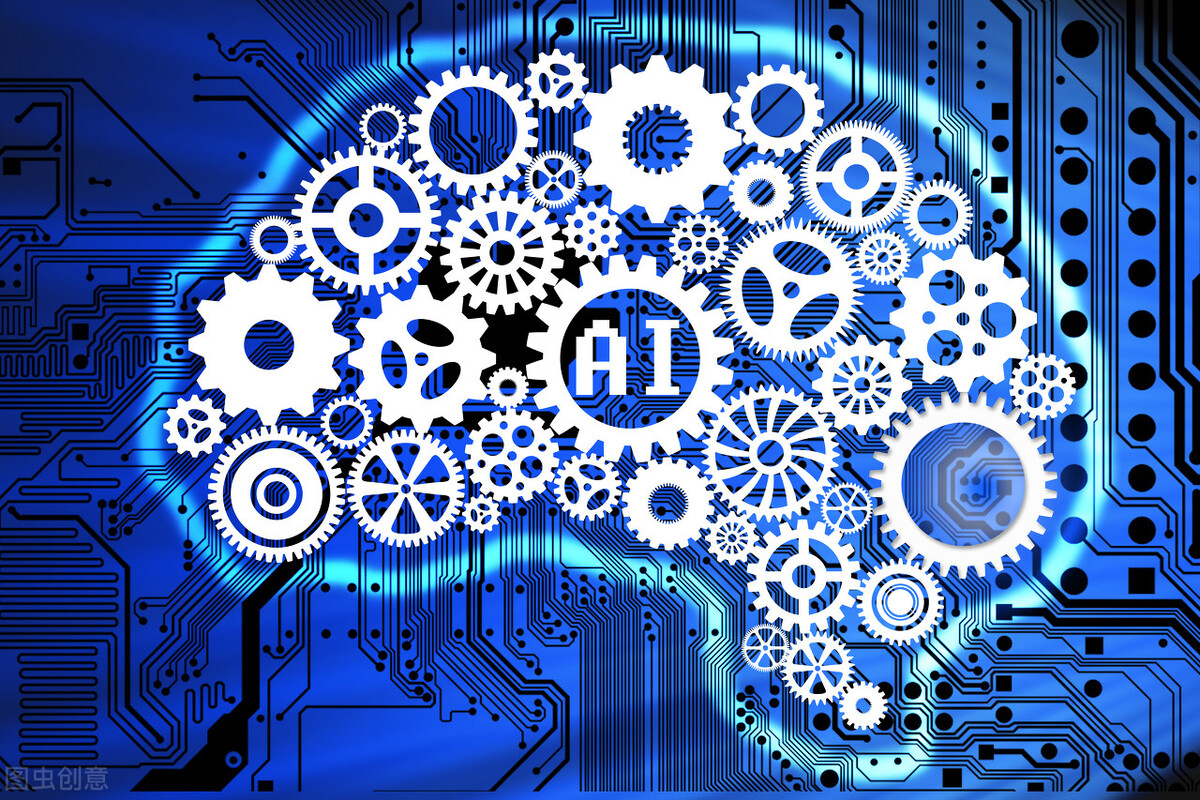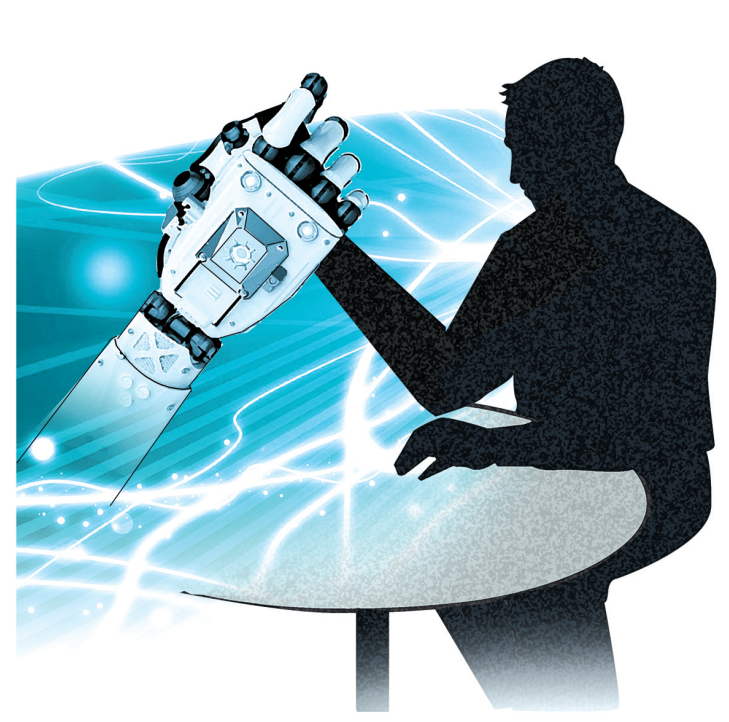Ethical Education Cannot Be Ignored In Artificial Intelligence Education
Ethical Education Cannot Be Ignored In Artificial Intelligence Education
Dialogue experts: Associate Professor Xiong Zhang, School of Computer Science, Beijing University of Aeronautics and Astronautics, Wang Jingyuan. Dialogue background: Ethical education in artificial intelligence education has two aspects: one is the ethics of the design goals, technical routes, and functional realization of artificial intelligence systems. The value orientation is to promote scientific and technological progress, promote social development, and improve people
Host: Our reporter Huang Wei
Dialogue experts: Associate Professor Xiong Zhang, School of Computer Science, Beijing University of Aeronautics and Astronautics, Wang Jingyuan
Dialogue background: Ethical education in artificial intelligence education has two aspects: one is the ethics of the design goals, technical routes, and functional realization of artificial intelligence systems. The value orientation is to promote scientific and technological progress, promote social development, and improve people's lives. It must not violate society. The welfare of the public; the other is the ethics when using artificial intelligence systems. Simply put, it is to promote good and avoid evil and do things that benefit mankind, and not to use artificial intelligence technology to do behaviors that endanger society and others. The reporter recently had a conversation with professors Xiong Zhang and Wang Jingyuan from the School of Computer Science and Technology of Beijing University of Aeronautics and Astronautics on the topic of artificial intelligence and ethical education.
To ensure healthy artificial intelligence education, we must pay attention to the ethical education.
Host: Using machines to replace human mental labor is a dream that humans have had since the invention of computers. After decades of hard work, artificial intelligence technology has experienced ups and downs and is becoming more mature, and has begun to assist or replace some of human mental labor. In some tasks with certain goals (such as Go, face recognition, etc.) artificial intelligence. It can even surpass humans and show better performance. In artificial intelligence education, we must pay attention to the scientific principles, development laws, and its impact on social development. So, what position should we place in ethical education in artificial intelligence education?
Xiong Zhang: Sickles, axes, steam engines, electricity, and telephones extend and enhance human limbs and facial features. Only artificial intelligence is the first time that it extends and enhances human brain power. The biggest difference between artificial intelligence technology compared to all previous technological progress is that it can liberate humans from some of their mental labor. With the continuous maturity and wide application of artificial intelligence technology, more and more judgments and decisions will be handed over to artificial intelligence in the future, such as identity confirmation, homework judgment, medical records reading, resume screening, investment decisions, etc., which means Artificial intelligence will deeply participate in many important activities in human society.
We have to admit that when humans make judgments and decisions, their basis must include socially recognized norms and decision-makers' emotions, attitudes and values. Society has many ethical norms and constraints on human decision-makers. When machines participate in human judgment and decision-making and play the role of artificial intelligence, it is easy to let the system judge based on a set of objective indicators. When the system engages in decision-making affairs, it is artificial to be able to obey socially recognized standards and human values. A big challenge to intelligence.
Wang Jingyuan: For example, a reasonable artificial intelligence resume screening software should not be discriminatory for factors such as gender, race, and skin color; a software used for intelligent medical care cannot be exaggerated or covered up in order to obtain improper benefits. The condition may even delay treatment. Fairness, justice, non-discrimination, and non-deception, ethical and moral standards used to require human decision-makers' behavior also need to be truly reflected in the automatic decision-making of artificial intelligence. An important task of education is to help people establish correct value and moral standards such as kindness, integrity, fairness, and justice. With the current level of artificial intelligence technology, we cannot provide moral education for artificial intelligence programs, but when we carry out artificial intelligence education, we must never ignore ethical education in artificial intelligence education.
Several basic ethical education points in artificial intelligence education
Host: Education developers should fully consider the basic requirements of social ethics when designing and developing artificial intelligence tools, in addition to complying with the basic principles of information technology not to harm ethics, such as not creating computer viruses, not developing harmful programs based on artificial intelligence, Are there any other considerations if you don’t do data theft, etc.?
Xiong Zhang: We must also fully consider the new roles played by artificial intelligence in social activities, considering the ethical risks that may be brought about by the misconduct of these roles, and not actively use the special status of the role to make profits for individuals or endanger the interests of others.
For example, when a developer develops a human resource management system for a company and uses traditional databases, information systems and other technologies, what ethical developers need to do is not to use their own technical advantages to reserve backdoors in the program and cannot change them. and copy the company's internal data, fully consider information security factors when designing programming. When developing a human resource management system based on artificial intelligence, developers also need to consider the ethical and moral risks of machines replacing people with evil. For example, we should actively avoid inputting factors such as race, skin color, gender and other factors into automatic decision-making algorithms as characteristics, and not develop algorithm functions that are snooping into employees' personal privacy.
Furthermore, artificial intelligence ethics education must also teach users to learn to use technology correctly in reasonable scenarios. Technology is usually neutral, and good and evil are only reflected in the use scenarios of technology. For example, the video "face-changing" technology based on artificial intelligence was originally intended to be used for film special effects, artistic creation, etc., but it may also be used in improper scenes such as bad publicity and forged evidence.
In addition, passive ethical risks of artificial intelligence should be avoided. This means that when artificial intelligence assumes important work functions, it may be disturbed by uncertain factors such as environmental changes and external attacks. If artificial intelligence technology is used in important positions, it will be used in important positions. If it is not reliable and stable enough, it may have some unpredictable consequences when attacked by outsiders. For example, during autonomous driving, special lighting and other scenarios may cause the algorithm to turn a blind eye to obvious obstacles. For image recognition algorithms in "face-scanning" payment applications, some adversarial samples can completely confuse the output of the artificial intelligence model and open the account to Visitors who should not be authorized. These are all risks caused by insufficient reliability of artificial intelligence in key positions.
Wang Jingyuan: We should educate students to actively understand the limitations, uncertainties and risks of technology when using an artificial intelligence technology to replace human work in the future.
For the entire society, both developers and users of artificial intelligence technology need to provide necessary sense of responsibility education. An important feature of artificial intelligence tools is to assist and serve humans to complete certain mental labor. When a machine agent humans complete certain tasks, "agent risk" will inevitably arise.
For example, in traditional wars, weapon operators need to go to the battlefield to fight, so they will have an intuitive understanding of the cruelty of killing. In the era of unmanned weapons, weapons operators can kill enemies thousands of miles away by just clicking buttons in the office. The cruelty of war has been reduced to the level of electronic games.
In the era of artificial intelligence, weapon killing may be entirely determined by algorithms, and human life and death are completely controlled by algorithms. If there are any unexpected effects caused by the unreliability of artificial intelligence in this process, the consequences will even bring great disasters to the entire human race. To avoid such a tragedy, necessary technical control measures are essential, and it is also very important to strengthen the education of responsibility awareness for the research and development of artificial intelligence tools and users.
Management departments’ actions in promoting the healthy development of artificial intelligence education
Host: Artificial intelligence is a developing science and technology. In its development process, in addition to promoting science and technology and promoting social development, the integration of artificial intelligence and education has also given rise to accompanying evaluation and personalization. Guidance and team-based homework have innovated the teaching environment, atmosphere and culture, and new changes and new impacts will occur. What should our schools and management departments do?
Xiong Zhang: Ethical education in artificial intelligence education has a process of continuous development and improvement. There is a long way to go to maintain the scientific nature of this process and maintain the healthy development of artificial intelligence education. Artificial intelligence education should be included in the curriculum system of compulsory education, general high schools and universities to ensure that schools are the main channel of artificial intelligence education. The education management department should clarify in the course plans of general high schools and compulsory education stages that artificial intelligence courses are an important part of information technology courses and information science courses, clarify training goals, course content and academic quality standards, and constantly update them in a timely manner. To ensure the scientificity, rigor and standardization of the teaching materials used by schools, we must promptly train the front-line teachers in the school so that they can become the main force. At the same time, we must also guide social public opinion and social forces to jointly maintain the healthy development of artificial intelligence education.
"China Education Daily" 3rd edition, June 15, 2019





